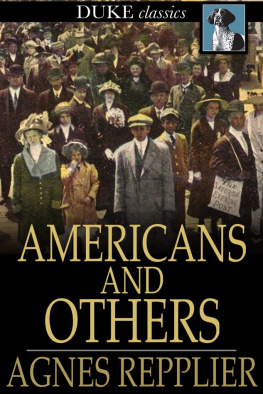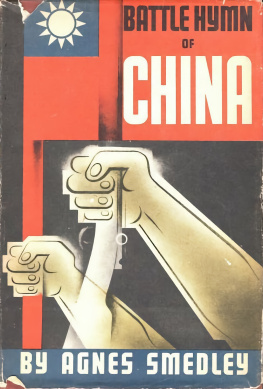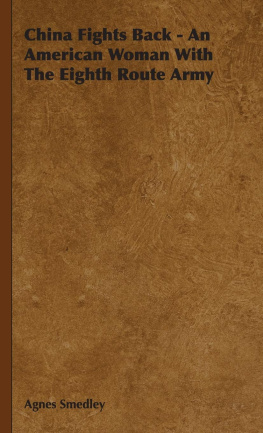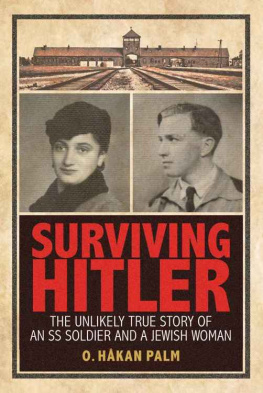Agnes Repplier - Americans and Others
Here you can read online Agnes Repplier - Americans and Others full text of the book (entire story) in english for free. Download pdf and epub, get meaning, cover and reviews about this ebook. year: 2013, publisher: Duke Classics, genre: Detective and thriller. Description of the work, (preface) as well as reviews are available. Best literature library LitArk.com created for fans of good reading and offers a wide selection of genres:
Romance novel
Science fiction
Adventure
Detective
Science
History
Home and family
Prose
Art
Politics
Computer
Non-fiction
Religion
Business
Children
Humor
Choose a favorite category and find really read worthwhile books. Enjoy immersion in the world of imagination, feel the emotions of the characters or learn something new for yourself, make an fascinating discovery.
- Book:Americans and Others
- Author:
- Publisher:Duke Classics
- Genre:
- Year:2013
- Rating:5 / 5
- Favourites:Add to favourites
- Your mark:
- 100
- 1
- 2
- 3
- 4
- 5
Americans and Others: summary, description and annotation
We offer to read an annotation, description, summary or preface (depends on what the author of the book "Americans and Others" wrote himself). If you haven't found the necessary information about the book — write in the comments, we will try to find it.
In her heyday, renowned essayist Agnes Repplier was one of the most influential literary voices in the United States. In the engaging volume Americans and Others, Repplier turns her trademark wit and insight toward her native country and explores subjects pertaining to the American sensibility, ranging from humor to etiquette and beyond.
Americans and Others — read online for free the complete book (whole text) full work
Below is the text of the book, divided by pages. System saving the place of the last page read, allows you to conveniently read the book "Americans and Others" online for free, without having to search again every time where you left off. Put a bookmark, and you can go to the page where you finished reading at any time.
Font size:
Interval:
Bookmark:

First published in 1912
ISBN 978-1-62013-348-4
Duke Classics
2013 Duke Classics and its licensors. All rights reserved.
While every effort has been used to ensure the accuracy and reliability of the information contained in this edition, Duke Classics does not assume liability or responsibility for any errors or omissions in this book. Duke Classics does not accept responsibility for loss suffered as a result of reliance upon the accuracy or currency of information contained in this book.
Five of the essays in this volume appear in print for the first time.Others have been published in the Atlantic Monthly, the CenturyMagazine, Harper's Bazar, and the Catholic World.
"La politesse de l'esprit consiste a penser des choses honnetes etdelicates."
A great deal has been said and written during the past few years onthe subject of American manners, and the consensus of opinion is,on the whole, unfavourable. We have been told, more in sorrow thanin anger, that we are not a polite people; and our critics have castabout them for causes which may be held responsible for such auniversal and lamentable result. Mr. Thomas Nelson Page, for example,is by way of thinking that the fault lies in the sudden expansionof wealth, in the intrusion into the social world of people who failto understand its requirements, and in the universal "spoiling" ofAmerican children. He contrasts the South of his childhood, thatwonderful "South before the war," which looms vaguely, but verygrandly, through a half-century's haze, with the New York of to-day,which, alas! has nothing to soften its outlines. A more censoriouscritic in the "Atlantic Monthly" has also stated explicitly that fortrue consideration and courtliness we must hark back to certain oldgentlewomen of ante-bellum days. "None of us born since the CivilWar approach them in respect to some fine, nameless quality thatgives them charm and atmosphere." It would seem, then, that the war,with its great emotions and its sustained heroism, imbued us withnational life at the expense of our national manners.
I wonder if this kind of criticism does not err by comparing the manywith the few, the general with the exceptional. I wonder if thedeficiencies of an imperfect civilization can be accounted for alongsuch obvious lines. The self-absorption of youth which Mrs. Comerdeprecates, the self-absorption of a crowd which offends Mr. Page,are human, not American. The nature of youth and the nature of crowdshave not changed essentially since the Civil War, nor since the PunicWars. Granted that the tired and hungry citizens of New York,jostling one another in their efforts to board a homeward train,present an unlovely spectacle; but do they, as Mr. Page affirms,reveal "such sheer and primal brutality as can be found nowhere elsein the world where men and women are together?" Crowds will jostle,and have always jostled, since men first clustered in communities.Read Theocritus. The hurrying Syracusansthird centuryB.C."rushed like a herd of swine," and rent in twain Praxinoe'smuslin veil. Look at Hogarth. The whole fun of an eighteenth-centuryEnglish crowd consisted in snatching off some unfortunate's wig, ortoppling him over into the gutter. The truth is we sin againstcivilization when we consent to flatten ourselves against ourneighbours. The experience of the world has shown conclusively thata few inches more or less of breathing space make all the differencebetween a self-respecting citizen and a savage.
As for youth,ah, who shall be brave enough, who has ever been braveenough, to defend the rising generation? Who has ever looked withcontent upon the young, save only Plato, and he lived in an age ofsymmetry and order which we can hardly hope to reproduce. Theshortcomings of youth are so pitilessly, so glaringly apparent. Nota rag to cover them from the discerning eye. And what a veil has fallenbetween us and the years of our offending. There is no illusionso permanent as that which enables us to look backward withcomplacency; there is no mental process so deceptive as the comparingof recollections with realities. How loud and shrill the voice ofthe girl at our elbow. How soft the voice which from the far pastbreathes its gentle echo in our ears. How bouncing the vigorous youngcreatures who surround us, treading us under foot in the certaintyof their self-assurance. How sweet and reasonable the pale shadowswho smilewe think appealinglyfrom some dim corner of ourmemories. There is a passage in the diary of Louisa Gurney, acarefully reared little Quaker girl of good family and estate, whichis dated 1796, and which runs thus:
"I was in a very playing mood to-day, and thoroughly enjoyed beingfoolish, and tried to be as rude to everybody as I could. We wenton the highroad for the purpose of being rude to the folks that passed.I do think being rude is most pleasant sometimes."
Let us hope that the grown-up Louisa Gurney, whenever she feltdisposed to cavil at the imperfections of the rising generation of1840 or 1850, re-read these illuminating words, and softened herjudgment accordingly.
New York has been called the most insolent city in the world. To makeor to refute such a statement implies so wide a knowledge ofcontrasted civilizations that to most of us the words have nosignificance. It is true that certain communities have earned forthemselves in the course of centuries an unenviable reputation fordiscourtesy. The Italians say "as rude as a Florentine"; and eventhe casual tourist (presuming his standard of manners to have beenset by Italy) is disposed to echo the reproach. The Roman, with thecivilization of the world at his back, is naturally, one might sayinevitably, polite. His is that serious and simple dignity whichbefits his high inheritance. But the Venetian and the Sienese havealso a grave courtesy of bearing, compared with which the mannersof the Florentine seem needlessly abrupt. We can no more account forthis than we can account for the churlishness of the Vaudois, whois always at some pains to be rude, and the gentleness of hisneighbour, the Valaisan, to whom breeding is a birthright, born, itwould seem, of generosity of heart, and a scorn of ignoble things.
But such generalizations, at all times perilous, become impossiblein the changing currents of American life, which has as yet no qualityof permanence. The delicate old tests fail to adjust themselves toour needs. Mr. Page is right theoretically when he says that thetreatment of a servant or of a subordinate is an infallible criterionof manners, and when he rebukes the "arrogance" of wealthy women to"their hapless sisters of toil." But the truth is that our haplesssisters of toil have things pretty much their own way in a countrywhich is still broadly prosperous and democratic, and our treatmentof them is tempered by a selfish consideration for our own comfortand convenience. If they are toiling as domestic servants,a fieldin which the demand exceeds the supply,they hold the key to thesituation; it is sheer foolhardiness to be arrogant to a cook.Dressmakers and milliners are not humbly seeking for patronage;theirs is the assured position of people who can give the world whatthe world asks; and as for saleswomen, a class upon whom muchsentimental sympathy is lavished year by year, their heart-wholesuperciliousness to the poor shopper, especially if she chance tobe a housewife striving nervously to make a few dollars cover herfamily needs, is wantonly and detestably unkind. It is not with usas it was in the England of Lamb's day, and the quality of breedingis shown in a well-practised restraint rather than in a sweet andsomewhat lofty consideration.
Font size:
Interval:
Bookmark:
Similar books «Americans and Others»
Look at similar books to Americans and Others. We have selected literature similar in name and meaning in the hope of providing readers with more options to find new, interesting, not yet read works.
Discussion, reviews of the book Americans and Others and just readers' own opinions. Leave your comments, write what you think about the work, its meaning or the main characters. Specify what exactly you liked and what you didn't like, and why you think so.









